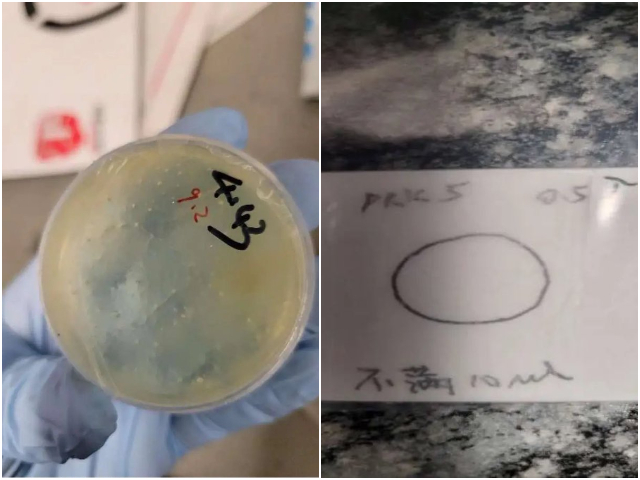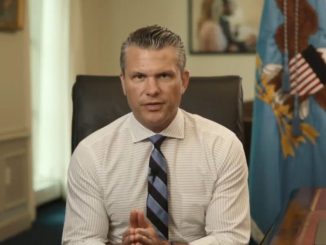
Published August 23, 2025
A Chinese national claiming to conduct research as a “visiting scholar” at a prestigious Michigan university now finds herself facing a long prison term after pleading no contest this week to three smuggling charges and making false statements to federal officers.
Detroit, August 2025 — A Chinese Ph.D. student once welcomed to the United States as part of a cultural and scientific exchange now faces years in prison after admitting to smuggling undeclared biological materials into the country. The case has rattled the academic community, heightened national security concerns, and revived old fears about the misuse of science for dangerous ends.
From Wuhan to Michigan: A Risky Journey
The defendant, Chengxuan Han, was a doctoral candidate at Huazhong University of Science and Technology in Wuhan. She arrived at Detroit Metropolitan Airport on June 8, 2025, holding a J-1 visa meant for visiting scholars. But federal agents quickly discovered her trip was not as straightforward as it seemed.
Customs and Border Protection (CBP) officers found that four packages Han had mailed ahead of her arrival were concealed and misdeclared. Inside: materials related to roundworms, a type of biological specimen tightly regulated under U.S. law. When pressed, Han admitted she had lied about the contents and misled officials during her initial inspection. Even more troubling, investigators said her electronic device had been wiped just days before she landed.
On August 19, Han pleaded no contest in federal court to three counts of smuggling and one count of making false statements.
Not an Isolated Case
Han’s arrest is part of a troubling pattern. Earlier this summer, another pair of Chinese researchers—Yunqing Jian and Zunyong Liu—were charged with smuggling a toxic fungus, Fusarium graminearum, into the U.S. The pathogen is notorious for attacking wheat and barley and has been labeled by experts as a potential “agroterrorism weapon.” Both researchers had ties to the University of Michigan.
Together, these cases have raised alarms that the misuse—or mishandling—of scientific material could threaten not just academic integrity but also public health, food security, and national defense.
Fallout for Academia and Security
While Han’s actions appear to have been tied to academic research, federal prosecutors are framing the incident as a national security risk. “This is not about simple mistakes on customs forms,” said one official familiar with the case. “It’s about protecting the country from unmonitored biological agents that could devastate communities or crops.”
The University of Michigan, though not accused of wrongdoing, has found itself in the spotlight. Federal agencies are now reviewing foreign research partnerships, with some lawmakers calling for stricter limits on foreign scholars working in sensitive scientific fields.
For universities, the cases pose a double-edged sword: how to preserve the spirit of international collaboration while guarding against the very real risks of biological smuggling.
The Bigger Picture
Han’s case underscores a growing rift between Washington and Beijing over science, security, and trust. For U.S. authorities, these incidents validate concerns that China may exploit academic exchanges for covert purposes. For Beijing, such prosecutions are portrayed as political, deepening diplomatic friction.
Meanwhile, American farmers, scientists, and the general public are left with uneasy questions: How secure are the nation’s labs? Could a single misstep or act of negligence unleash a crisis? And at what cost should international academic cooperation continue?
 Resulting Effects of the Chinese Scholar Biological Smuggling Case:
Resulting Effects of the Chinese Scholar Biological Smuggling Case:
1. Legal & Individual Consequences
-
Prison Time & Deportation: Chengxuan Han faces prison and almost certain removal from the U.S. after serving her sentence. This sets an example for other foreign researchers that U.S. authorities will enforce the law on smuggling bio-materials.
-
Harsher Sentencing in Similar Cases: Federal prosecutors may now pursue maximum penalties in related cases to discourage future attempts.
2. National Security & Public Safety
-
Bioterrorism Concerns: The DOJ and FBI highlighted that organisms like roundworms or fungi can be exploited for agroterrorism, disrupting crops or spreading disease. The perception of “academic smuggling” has shifted from rule-breaking to national security risk.
-
Stricter Airport Screening: Expect tighter inspections at airports—especially Detroit Metro and hubs near major universities—for travelers coming from research-heavy regions like China.
3. Academic & Research Fallout
-
Chilled Collaborations: U.S. universities will likely face stricter vetting of foreign scholars, particularly from China. Programs like J-1 visas could see new security layers.
-
Institutional Scrutiny: The University of Michigan may not be directly at fault, but it will undergo more federal oversight on foreign research partnerships, grants, and labs. Other universities may also preemptively tighten compliance.
-
Research Delays: Legitimate international collaborations involving biological samples could face delays or denials, slowing down medical and agricultural research.
4. Geopolitical Implications
-
Strain on U.S.-China Academic Relations: This case feeds into broader suspicion that China uses academic exchanges for covert purposes. Washington may use this as leverage in ongoing disputes about espionage and intellectual property theft.
-
China’s Reaction: Beijing will likely deny wrongdoing and accuse the U.S. of politicizing academic work, but behind the scenes, U.S. agencies may treat Chinese research ties with even greater caution.
5. Public Perception
-
Erosion of Trust: Ordinary Americans may now look at foreign researchers with suspicion, especially those tied to sensitive fields like biology, virology, and agriculture.
-
Fear of Lab Leaks or Abuse: The fact that Wuhan (Han’s university) is mentioned in this case heightens public unease—reviving associations with the COVID-19 pandemic and lab security fears.
6. Policy & Regulatory Shifts
-
Stricter Permits & Licensing: Expect updates to USDA and CDC regulations governing import of biological material. Agencies may demand more paperwork and proof of intent before research samples can enter the country.
-
Expanded FBI/ICE Role in Academia: Federal agents may get broader access to university research programs to monitor foreign nationals.
On June 8, the FBI arrested a second Chinese national on charges of smuggling biological materials into the U.S. and lying to federal agents. This individual is Chengxuan Han, a citizen of the People’s Republic of China and a Ph.D. student in Wuhan, China. (@FBIDirectorKash)
 Bottom Line:
Bottom Line:
The case of Chengxuan Han is more than a courtroom story—it is a warning sign. What began as an academic exchange quickly unraveled into a matter of national security, public safety, and trust in international research. Han’s no-contest plea underscores the seriousness with which U.S. authorities now treat any unauthorized biological imports, no matter how small or seemingly academic.
The fallout extends far beyond one scholar. Universities face tighter scrutiny, visa programs for foreign researchers will likely become more restrictive, and public suspicion of foreign scientific collaboration—particularly with China—will deepen. For Washington, these prosecutions are not only about enforcing the law but about drawing a red line: the United States will not tolerate actions that could threaten its people, its agriculture, or its security under the cover of science.
Ultimately, the Han case highlights the fragile balance between global academic cooperation and national defense. If missteps like this continue, the U.S. may move from collaboration to containment—reshaping the future of research partnerships and redefining how science is shared across borders.






Be the first to comment